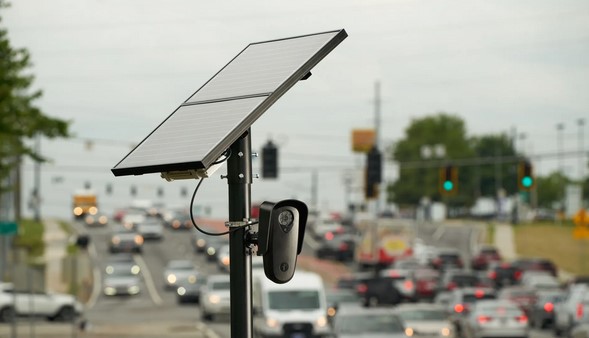License Plate Readers Beyond Law Enforcement: The Civilian Perspective
 License Plate Readers (LPRs) are a technology that has been used by law enforcement for many years. However, the use of LPRs is not limited to law enforcement. Civilians can also benefit from the use of LPRs in a variety of ways. This article will explore the civilian perspective on LPRs, including the potential benefits and drawbacks of using this technology. It will also discuss the ethical considerations that must be taken into account when using LPRs. Finally, it will provide an overview of the current legal landscape surrounding the use of LPRs by civilians.
License Plate Readers (LPRs) are a technology that has been used by law enforcement for many years. However, the use of LPRs is not limited to law enforcement. Civilians can also benefit from the use of LPRs in a variety of ways. This article will explore the civilian perspective on LPRs, including the potential benefits and drawbacks of using this technology. It will also discuss the ethical considerations that must be taken into account when using LPRs. Finally, it will provide an overview of the current legal landscape surrounding the use of LPRs by civilians.
Exploring the Benefits of Civilian License Plate Readers: How They Can Help Keep Communities Safe
Civilian license plate readers (LPRs) are an increasingly popular tool for law enforcement and private security agencies. They are used to scan and record the license plates of passing vehicles, and can be used to identify stolen vehicles, locate missing persons, and even help solve crimes. In addition to these benefits, LPRs can also help keep communities safe by providing a valuable layer of security.
First, LPRs can help law enforcement agencies quickly identify stolen vehicles. By scanning the license plates of passing vehicles, LPRs can quickly detect if a vehicle has been reported stolen. This can help law enforcement agencies quickly locate and recover stolen vehicles, and can also help deter potential car thieves.
Second, LPRs can help law enforcement agencies locate missing persons. By scanning the license plates of passing vehicles, LPRs can quickly detect if a vehicle is registered to a missing person. This can help law enforcement agencies quickly locate and recover missing persons, and can also help deter potential abductors.
Third, LPRs can help law enforcement agencies solve crimes. By scanning the license plates of passing vehicles, LPRs can quickly detect if a vehicle is registered to a suspect in a crime. This can help law enforcement agencies quickly locate and apprehend suspects, and can also help deter potential criminals.
Finally, LPRs can help law enforcement agencies monitor suspicious activity. By scanning the license plates of passing vehicles, LPRs can quickly detect if a vehicle is registered to a person with a criminal record. This can help law enforcement agencies quickly identify and investigate suspicious activity, and can also help deter potential criminals.
In conclusion, civilian license plate readers can provide a valuable layer of security for communities. They can help law enforcement agencies quickly identify stolen vehicles, locate missing persons, solve crimes, and monitor suspicious activity. By utilizing LPRs, law enforcement agencies can help keep communities safe and secure.
Examining the Privacy Implications of Civilian License Plate Readers: What Are the Risks?
The use of civilian license plate readers (LPRs) has become increasingly common in recent years, raising important questions about the privacy implications of this technology. LPRs are cameras mounted on police cars, buildings, or other structures that capture images of license plates and store the data in a database. This data can then be used to track the movements of individuals over time.
While LPRs can be used to help law enforcement identify and apprehend criminals, they also raise serious privacy concerns. For example, LPRs can be used to track the movements of individuals without their knowledge or consent, and the data collected can be used to build detailed profiles of individuals’ activities. Additionally, the data collected by LPRs can be shared with other agencies, potentially leading to further privacy violations.
Given the potential risks posed by LPRs, it is important to consider the privacy implications of this technology. To begin with, it is important to ensure that LPRs are used in a manner that is consistent with existing laws and regulations. Additionally, it is important to ensure that the data collected by LPRs is stored securely and is only used for legitimate law enforcement purposes. Finally, it is important to ensure that individuals are aware of the potential risks posed by LPRs and are given the opportunity to opt out of having their data collected.
In conclusion, the use of civilian license plate readers raises important questions about the privacy implications of this technology. It is important to ensure that LPRs are used in a manner that is consistent with existing laws and regulations, that the data collected is stored securely, and that individuals are aware of the potential risks posed by LPRs and are given the opportunity to opt out of having their data collected. By taking these steps, we can help ensure that LPRs are used responsibly and that individuals’ privacy is respected.In conclusion, License Plate Readers (LPRs) have the potential to be a powerful tool for both law enforcement and civilians. For law enforcement, they can help to quickly identify stolen vehicles, locate suspects, and track criminal activity. For civilians, they can provide an extra layer of security and peace of mind, as well as the ability to quickly locate lost or stolen vehicles. However, it is important to remember that LPRs come with certain risks, such as privacy concerns and the potential for misuse. It is therefore important to ensure that any LPR system is properly regulated and monitored to ensure that it is used responsibly and in accordance with the law.





